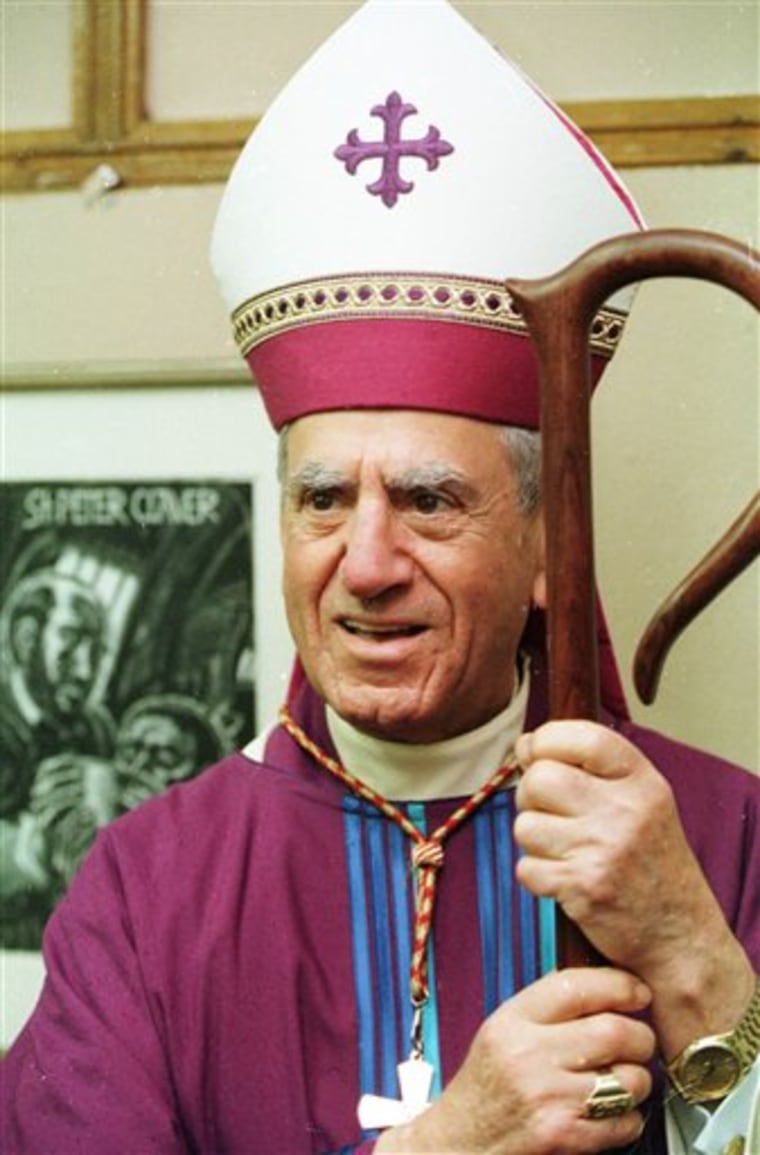Cardinal Anthony Bevilacqua — the retired Catholic archbishop of Philadelphia whose competence to testify in an upcoming church sex abuse trial was hotly debated in court — died in his sleep on Tuesday, the church said. He was 88.
Bevilacqua died in his sleep at Saint Charles Borromeo Seminary in Wynnewood, archdiocese spokeswoman Donna Farrell said. He had been battling dementia and an undisclosed form of cancer.
He served as the spiritual leader of the 1.5 million-member Archdiocese of Philadelphia from 1988 until his retirement in 2003.
Bevilacqua, who was both a civil and canon lawyer, was sharply criticized but never charged by two Philadelphia grand juries investigating child sex abuse complaints lodged against dozens of priests in the archdiocese.
His death comes just days after lawyers battled in court over his competency as a witness in an upcoming trial of a longtime aide charged with endangering children through priest transfers.
A Brooklyn native, Bevilacqua was ordained in 1949 and became chancellor of the Brooklyn Diocese in 1976. He was named bishop of Pittsburgh in 1983.
As a church leader, he campaigned for a moratorium on the death penalty and often spoke out against homosexuality, birth control and abortion. He headed the influential bishops' Committee on Pro-Life Activities.
'A moral evil'
In the 1990s, Bevilacqua advocated successfully for the canonization of Katharine Drexel — an heiress who took a poverty vow and educated Native Americans and blacks.
Bevilacqua also fought for the poor and disadvantaged, but also attracted his share of controversy.
In 2002, when the church came under fire for clerical sexual abuse, Bevilacqua called homosexuality an "aberration, a moral evil" and suggested gays were more likely to commit abuse.
Under Bevilacqua, the Philadelphia archdiocese tried to weed out gay candidates to the priesthood and expelled any seminarian found to be an active homosexual — a zero-tolerance policy experts called relatively rare.
Bevilacqua was born in 1923, in Brooklyn, the ninth of 11 children of Italian immigrants. He was ordained in 1949.
In Philadelphia, he heeded the pope's call for a "New Evangelization," and used novel methods, such a toll-free confession line, to try to bring lapsed Catholics back into the fold.
He was the first cardinal to host a live weekly radio call-in program, and started a website to let the public email questions to priests.
"We are carrying out the wishes of the Holy Father for a new evangelization, reaching out to people like never before," Bevilacqua said after the telephone hotline began in 1998.
Endangering children
He retired in 2003, after he turned 80, and was replaced as archbishop by Cardinal Justin Rigali, who retired last year after the second grand jury report led to the charges against Monsignor William Lynn, three priests and a Catholic school teacher.
Lynn is charged with endangering children by keeping dangerous priests on the job. His lawyers have argued that he took orders from Bevilacqua.
Bevilacqua had been deposed in late November to preserve his testimony, but defense lawyers said he no longer recognized Lynn and could not remember much of relevance to the case.
As recently as Monday, lawyers battled in Common Pleas Court as to whether Bevilacqua was competent to testify.
The judge stuck to a prior ruling that he was competent to speak.
A jury is set to begin hearing charges in March against the five defendants.
Child abuse controversies have rocked the Catholic Church in the United States in the last decade, and the church has paid out some $2 billion in settlements to victims, bankrupting a handful of dioceses.
